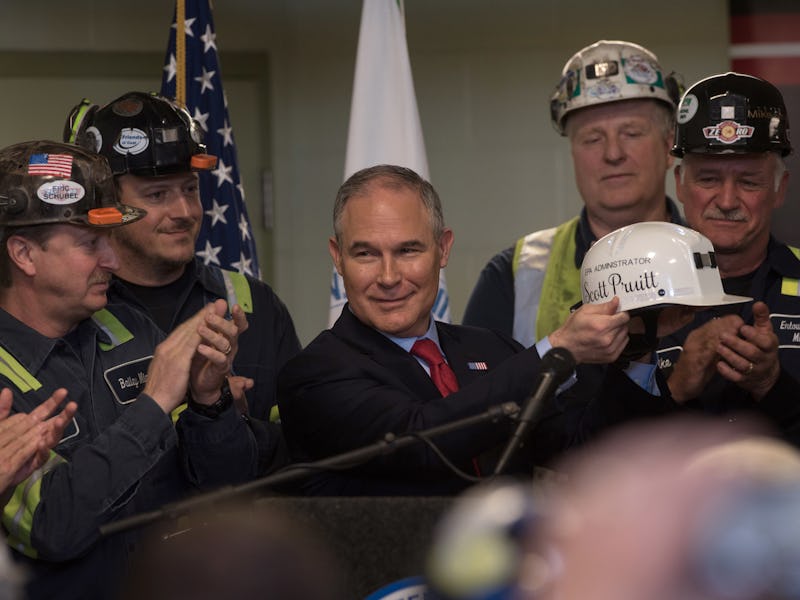The EPA Moves to Let Power Plants Dump Poison in the Water
Scott Pruitt wants to delay Obama-era limits on heavy metals like lead and arsenic in wastewater.

The Environmental Protection Agency is indefinitely postponing compliance deadlines from Obama-era regulation that required coal power plants to limit the toxic heavy metals — arsenic, lead, mercury, selenium, chromium, and cadmium — that they dump into the environment.
On Thursday, EPA Administrator Scott Pruitt signed a rule that essentially erases the November 2018 deadline plants had to comply with regulations.
It’s a win for power plants that has potentially devastating consequences for humans and animals, with poisons quickly trickling into drinking water, and adds to environmentalists’ worries about the new directions Pruitt might be taking with how the EPA is being led now into the future, particularly in a time of climate change.
A graphic released by the EPA in 2015 shows how coal fire steam electric plants release toxic heavy metals into public waters.
Heavy metals can lead to cancer, organ damage, birth defects, and brain damage. Even very low levels of arsenic, mercury, and other heavy metals can be dangerous; there’s no known safe level of lead in drinking water.
In a statement, Pruitt said that delaying the heavy metal regulation would “protect the environment, jobs and affordable, reliable energy,” and that delaying the deadlines would be the first step while the agency “carefully consider[s] next steps for the regulation.”
The EPA also stated that it had decided to delay the deadlines after receiving two petitions from industry representatives, which argued that cutting heavy metals out of wastewater was an impossible goal for the impacted coal-fired plants.
Back in 2015, when the original regulation was written, the EPA put out a fact sheet stating that new technologies already in use in many places would allow coal-fired steam power plants to cut their heavy metal dumping for a cost they could afford without significantly raising electric bills — about $480 million per year all told across the country. The health savings to the public, the EPA then estimated, would come to between $451 million and $566 million per year.
Which means Pruitt’s goal of streamlining the EPA and making it business-friendly is in full-effect. Because the heavy metal regulation and its original deadlines are already on the books, Pruitt’s EPA will have to go through the complete process of creating a new regulation in order to postpone them, which includes a public notice and comment period. Once the agency publishes the amended rule to the federal register, the public will be able to weigh in here.